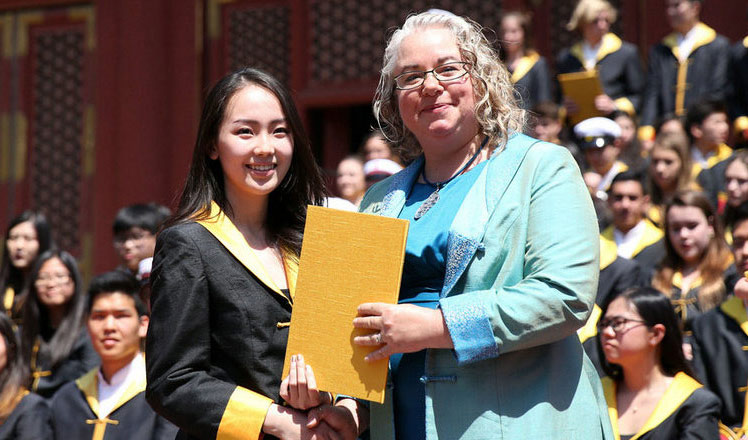South China Sea issue should be handled in constructive manner: Chinese diplomat
Updated: 2016-05-29 09:53
(Xinhua)
|
||||||||
China's Permanent Representative to the United Nations Office at Geneva Ma Zhaoxu stressed on Friday that the South China Sea issue must be resolved peacefully through constructive and meaningful negotiations with neighbouring countries.
Drawing on China's experience in resolving land and territorial boundary issues with neighbouring countries, Ma highlighted that dialogue is key to facilitating consultations which also respect the principle of equality among sovereign states.
"China is a victim in the South China Sea issue. Nonetheless, in order to maintain regional peace and stability, the Chinese side has all along exercised great restraint, and tried our best to handle the South China Sea issue in a responsible and constructive manner," he explained.
Despite various views and prespectives, Beijing has continuously highlighted the importance of resolving disputes through discussions in accordance with international law while respecting historical facts.
Together with the Association of Southeast Asian Nations (ASEAN) member states, China in 2002 became a signatory of the declaration on the conduct of parties in the South China Sea.
Combined with consultations on the conduct of parties in the South China Sea, the platforms enable states to exchange views, manage differences and enhance cooperation, Ma explained.
"China has always been very positive and constructive in these negotiations and consultations," he reminded.
China is also party to the United Nations Convention on the Law of the Sea (UNCLOS).
A declaration on optional exceptions, made by China in 2006, excluded disputes concerning maritime delimitation, historic bays or titles, as well as military and law enforcement activities from the dispute resolution procedures of UNCLOS.
In light of this and other procedural violations, Ma indicated that the Philippines' unilateral arbitration case against China is worthless, making the "award" passed by the Arbitral Tribunal unacceptable to China.
He also emphasised that the South China Sea Islands have been part of China's territory since ancient times.
"Before the 1970s, it was widely recognised by the international community that the South China Sea Islands belong to China and no country ever challenged this," Ma highlighted.
The diplomat also underlined China's right to conduct construction activities on some of the islands and reefs regardless of scale and pace as the undertakings are carried out on Chinese territory.
Respecting the freedom of navigation and overflight, which is underpinned by international law, is also a central tenet to regional stability, Ma indicated.
"To uphold freedom of navigation and overflight in the South China Sea is not only an obligation under the international laws. It is also in line with China's own interests, as well as the interests of all countries in the region," he said.
- China rebukes South China Sea hype at G7 Summit
- China rejects US aircraft surveillance over South China Sea
- South China Sea issue should not be hyped up: Chinese DM
- Behind South China Sea tensions, US tries to maintain domination over world issues
- Road sign indicates distances from South China Sea issue
- Camps abroad offer students a new experience
- China-made world's first functional 3D printed building opens in Dubai
- Map reveals claim over islands by Manila groundless
- Racial sensitivity urged as ad causes outrage
- Regulator to launch drug pricing probe
- What is that thing? Innovative bus looks like a moving tunnel
- Chinese G20 presidency 'ambitious' in seeking solutions for global growth: OECD official
- UNICEF alarmed at refugee, migrant deaths in Mediterranean
- 35% of northern and central Great Barrier Reef destroyed
- Vintage plane crashed in Hudson River during emergency landing
- 2,000 refugees relocated on first day of major police operation
- No sign of EgyptAir plane technical problems before takeoff

 Graduation ceremony held in Confucius Temple
Graduation ceremony held in Confucius Temple
 Wanda opens theme park to rival Disney
Wanda opens theme park to rival Disney
 Fog turns Qingdao city into a fairyland
Fog turns Qingdao city into a fairyland
 Trams to be in trial use in SW China
Trams to be in trial use in SW China
 children's Day: From cooking meal to catwalk
children's Day: From cooking meal to catwalk
 Beijing style: People embrace the summer heat
Beijing style: People embrace the summer heat
 Ten photos from around China: May 21-27
Ten photos from around China: May 21-27
 VR, robots, mini drones: Highlights of big data expo in Guiyang
VR, robots, mini drones: Highlights of big data expo in Guiyang
Most Viewed
Editor's Picks

|

|

|

|

|

|
Today's Top News
Liang avoids jail in shooting death
China's finance minister addresses ratings downgrade
Duke alumni visit Chinese Embassy
Marriott unlikely to top Anbang offer for Starwood: Observers
Chinese biopharma debuts on Nasdaq
What ends Jeb Bush's White House hopes
Investigation for Nicolas's campaign
Will US-ASEAN meeting be good for region?
US Weekly

|

|









